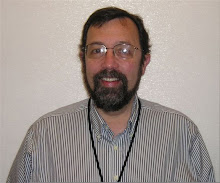Epigenetic organizations
In the late 80s, I was watching a PBS program on street gangs. Part of the program dealt with a process that gangs use to allow new members entry, called “jumping in”. A pretty simple activity, the new member is subjected to a beating by the current members of the gang, and if they can stand up to it, they are admitted. What was most interesting was the realization that this was an initiation rite. Where did street gangs come up with this? Somehow, rites of passage have become part of street gang (and most other gangs such as motorcycle and prison gangs) culture. This was an initial clue that something significant was present in the way that human groups naturally operate. After all, if this activity did not serve some purpose, why would a gang use it?
When I moved from working with individual clients and families to working with organizations (around 1997), the developmental models used in psychotherapy were not available or didn't seem to apply in the literature to organizations. The most visible were the "form, storm, norm” stages. In my work as a therapist, developmental theory served as the underpinning of therapy practice. My sense at that time, and now, was that organizations are groups of human beings and should follow certain developmental patterns, whether they're aware of them or not.
Based on training as a family therapist, and a sense that other disciplines such as cultural anthropology and social psychology might hold the key to the normal developmental stages of organizations, I entered Fielding Graduate University as a doctoral student. The goal of this blog is to explore the applicability of cultural anthropology, related social psychology, and sociology concepts and their implications to organizations.
Subscribe to:
Post Comments (Atom)

Scott very interesting, first time I have heard of epigenetics. Is there a website you recommend where I can explore further. I began my studies at Fielding this year...NSO in March. Still looking for ideas to focus my research on. Initially, this sounds very interesting and I am looikng forward to learning more. Chris cszpryngel@post.edu
ReplyDeleteI would like to hear more about applying epigenetic theory into OD practice.
ReplyDeleteThis is awesome stuff. Especially as I think of different psychological developmental models and milestones. As a psychotherapist, different forms of development are always in the foreground/background as i assess a patient. This may include how someone dresses (which can be completely subjective) to their ability to reason, have self/other awareness, assume responsibility for self/other. This is only one tiny slice of development, which is why I want to hear more about applications of epigenetic theory.